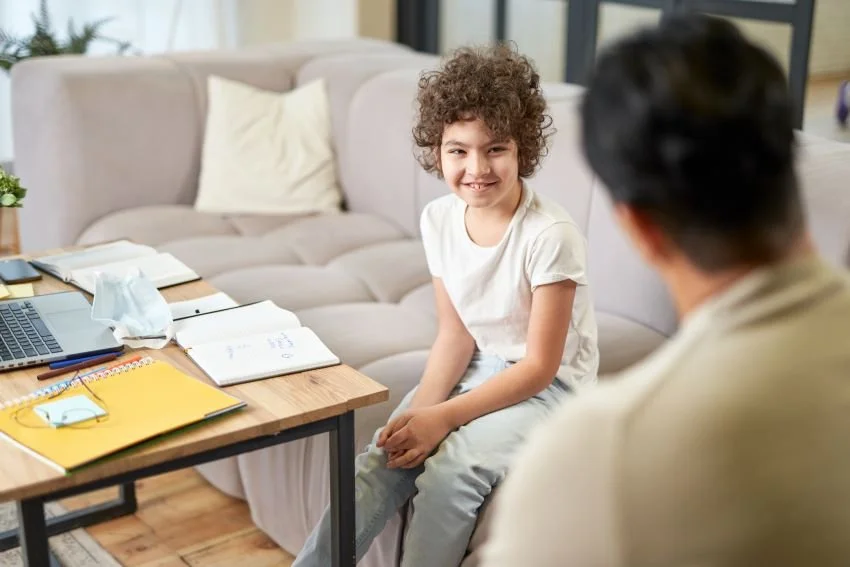How Does Divorce Affect Children? Advice from a Children’s Therapist
Divorce is a complex and emotional experience that can be particularly difficult for families with children. The separation process from a spouse can be overwhelming and confusing for both parents and kids, and it can have a significant impact on everyone's mental and emotional well-being. However, seeking therapy for your children can be a valuable tool in helping them navigate the challenges of divorce and provide parents with the support they need during this transition. In this blog post, we will delve deeper into how divorce affects children and offer helpful tips on how therapy for kids and parents can help their children navigate and process the experience of divorce.
How Divorce Affects Children
Divorce can be a harrowing experience for children, as it disrupts their daily lives and sense of familiarity. They might feel confused, overwhelmed, and anxious about being left alone during this period, or may become particularly reactive or act out in other ways. However, as a parent, there are steps you can take to help your children cope with divorce. If you’re seeking information preemptively, you’ll want to begin by observing any changes in their behavior, mood, or functionality following the divorce. This will allow you to identify any issues and provide the necessary support to help them adapt to their new living arrangements and routines.
Here’s some of what to look out for:
Emotional Turmoil
Children may experience a wide range of emotions during these difficult times, including sadness, anger, confusion, anxiety, and fear. Being patient and reassuring with them is crucial to provide support during this time. Maintaining a routine can also alleviate some of their concerns and worries.
Feelings of Guilt and a Loss of Self-Esteem
Children may feel like they are in the middle of their parents' conflicts and can even blame themselves for the breakup. This can lead to a negative impact on their self-esteem and sense of worth. As a parent, reassuring your child that the divorce is not their fault and that they are not responsible for what is happening is essential. Doing so can help your child feel loved and supported during this challenging time. It is crucial for parents to be aware of the impact of parental conflict on their children and to provide them with the necessary emotional support.
Acting Out
Children experiencing a tough time may display behavioral issues or emotional changes such as irritability, withdrawal, or aggression. On the other hand, some children may misbehave, break rules, or even resort to substance abuse as a way to receive attention or rebel against authority. Caregivers must be patient and understanding with children during these times while enforcing clear boundaries and rules.
Issues with Trust
When parents decide to separate or get a divorce, it may significantly affect their children's emotional and psychological well-being. This can make it challenging for children to form healthy relationships in the future, as they may feel insecure or unstable. However, parents can help their children build a strong foundation for the future by taking proactive steps. Be sure to encourage your children to maintain healthy relationships with both parents and engage in activities that promote positive coping skills. Establishing consistent routines and maintaining a stable home environment can also help children feel secure and develop a sense of trust and reliability.
Supporting Your Child Through Divorce: Finding a Child Therapist in North Texas
Going through a divorce can be an overwhelming experience for everyone involved, but it's often the children who are most affected. Finding ways to support your child during this transition is crucial as a parent. One of the most effective ways to help your child navigate the confusing emotions that come with divorce is by taking them to child therapy. Therapy can be a valuable tool in assisting children to cope with the effects of divorce.
Child Therapy in North Texas Will Provide a Safe Space for Your Child
Child therapy provides a safe and confidential space for children to express themselves freely while learning healthy coping mechanisms to manage their emotions and behaviors. Children can learn relaxation techniques, mindfulness practices, and positive self-talk to help them organize their feelings and behaviors. Therapy can also help children build problem-solving skills and resilience to navigate the effects of divorce and other challenges they may face.
By taking a proactive and constructive approach, parents can support their children in navigating this transition and emerging stronger and more resilient. Parenting support in North Texas, including child therapy, is essential in guiding children through challenges and ensuring their emotional needs are met during and after divorce. Therapy also indirectly benefits parents by reassuring them that their child receives guidance from a professional counselor. Additionally, parents can learn effective strategies for supporting their child at home, strengthening family bonds despite the situation.
Caring for Yourself During Divorce: Seeking Parenting Support in North Texas
As a parent, it's crucial to prioritize your emotional well-being to be there for your children. You can seek help by joining a support group or seeking counseling for yourself, where you can receive empathy, advice, and solidarity during tough times. Choosing a therapist that offers constructive solutions and compassion is crucial. Remember that seeking help shows strength and can lead to a positive outcome for everyone involved.
Divorce can be a challenging time for families, but there are ways to overcome it and emerge stronger. Seeking the help of a qualified child therapist and keeping communication open can guide parents and children through this difficult period and help them develop resilience and skills to process their emotions constructively. Parents and children can heal and thrive by practicing self-care, embracing new routines, and maintaining an open heart. Remember, therapy can be a proactive step towards ensuring your child's well-being and promoting healing for your family. If you notice significant changes in your child's behavior or emotions, don't hesitate to contact the North Texas Adult & Child Counseling Center for your free consultation. Together, we can work towards a healthy and happy future.




